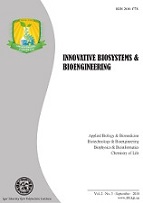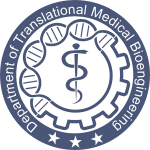Efficacy Profile of the Homeopathic Combination for Influenza and Acute Respiratory Viral Diseases Treatment and Prevention
DOI:
https://doi.org/10.20535/ibb.2018.2.4.148441Keywords:
Homeopathic preparation, Influenza, Acute respiratory infections, Pharmacological propertiesAbstract
Background. Acute respiratory viral infection (ARVI) is accompanied by a general intoxication syndrome and respiratory mucosa predominant damage. A significant number of viral nature pathogens from various nosological groups (influenza viruses, parainfluenza, adenoviruses, respiratory syncytial viruses, coronaviruses, picornaviruses, rhinoviruses, enteroviruses, herpesviruses, etc.) could cause development of ARVI at human respiratory tract. Methods of ethnoscience and non-traditional medicine can be used as part of integrated treatment and prevention of influenza and ARVI. With the help of anti-cold homeopathic remedies, people can be treated from the very beginning of the disease when an elevated temperature is observed and there are all signs of intoxication and inflammation.
Objective. Scientific justification for the safety and efficacy of a complex homeopathic formulation in tablet form (Aconitum napellus D6, Ammonium bromatum D4, Atropa belladonna D6, Bryonia D6, Cinchona pubescens D6, Echinacea D3, Hydrargyrum bicyanatum D8, Rhustoxicodendron D6) intended to enhance the natural immunity in influenza and respiratory diseases, to normalize the functional state of the immune system and upper respiratory tract.
Results. Most patients have acute febrile respiratory syndrome, and some population groups have an increased risk of complications in the form of severe illness or death. These groups include elderly people, very young people, and people with concomitant illnesses. Annually, every third inhabitant of the planet suffers from acute respiratory infections. We have conducted a scientific substantiation of the safety and efficacy of a complex homeopathic tablet formulation (Aconitum napellus D6, Ammonium bromatum D4, Atropa belladonna D6, Bryonia D6, Cinchona pubescens D6, Echinacea D3, Hydrargyrum bicyanatum D8, Rhustoxicodendron D6), which can be used to treat and prevention of these diseases.
Conclusions. Components of developed homeopathic preparation are used in medical practice as anti-cold and immunomodulating mono- and complex homeopathic preparations for more than 100 years. There are no restrictions on the use of the drug in the context of its safety profile, since the active ingredient concentrations used are completely non-toxic. The preparation enhances the body’s protective responses and promotes the relief of symptoms of acute respiratory infections and flu (headache, sneezing, runny nose, sore throat, body aches, fever) and rapid recovery.References
Dunn JJ, Miller MB. Emerging respiratory viruses other than influenza. Clin Lab Med. 2014; 34(2):409-430. DOI: 10.1016/j.cll.2014.02.011
Fillatre A, François C, Segard C, Duverlie G, Hecquet D, Pannier C, et al. Epidemiology and seasonality of acute respiratory infections in hospitalized children over four consecutive years (2012-2016). J Clin Virol. 2018;102:27-31. DOI: 10.1016/j.jcv.2018.02.010
Tyrrell C, Allen J, Carson G. Influenza and other emerging respiratory viruses. Medicine. 2017;45(12):781-787. DOI: 10.1016/j.mpmed.2017.09.003
Renoux H. Methodology, importance, aims and objectives of provings carried out by homeopathic students. La Revue d'Homéopathie. 2018;9(1):1-3. DOI: 10.1016/j.revhom.2018.01.022
Sarembaud A. Homeopathic therapy as everyday primary care. Observations and reflections. La Revue d'Homéopathie. 2017;8(3):43-46. DOI: 10.1016/j.revhom.2017.07.009
Bouvier NM, Palese P. The biology of influenza viruses. Vaccine. 2008; 26(4):49-53. DOI: 10.1016/j.vaccine.2008.07.039
Matsuzaki Y, Katsushima N, Nagai Y, Shoji M, Itagaki T, Sakamoto M, et al. Clinical features of influenza C virus infection in children. J Infect Dis. 2006;193(9):1229-1235. DOI: 10.1086/502973
Belykh NA, Yesakova YM, Fokicheva NN, Piskunova MA, Martesheva LM, Kalashnikova ON, et al. Clinical and epidemiological characteristics of influenza in children of the Ryazan region in 2015-2016 season. Sovremennaya Pediatriya. 2017;1(81):127-132. DOI: 10.15574/sp.2017.81.127
Brundage JF. Interactions between influenza and bacterial respiratory pathogens: implications for pandemic preparedness. Lancet Infect Dis. 2006;6(5):303-312. DOI: 10.1016/S1473-3099(06)70466-2
Hageman JC, Uyeki TM, Francis JS, Jernigan DB, Wheeler JG, Bridges CB, et al. Severe community-acquired pneumonia due to Staphylococcus aureus, 2003–04 influenza season. Emerg Infect Dis. 2006;12(6):894-899. DOI: 10.3201/eid1206.051141
Carrat F, Leruez-Ville M, Tonnellier M, Baudel JL, Deshayes J, Meyer P, et al. A virologic survey of patients admitted to a critical care unit for acute cardiorespiratory failure. Intensive Care Med. 2006;32(1):156-159. DOI: 10.1007/s00134-005-2861-4
Kayne S. Homeopathic pharmacy. 2nd ed. Churchill Livingstone; 2006. 336 p.
Michalsen A, Uehleke B, Stange R. Safety and compliance of a complex homeopathic drug (Contramutan N Saft) in the treatment of acute respiratory tract infections: A large observational (non-interventional) study in children and adults focussing on homeopathy specific adverse reactions versus adverse drug reactions. Regul Toxicol Pharmacol. 2015;72(2):179-184. DOI: 10.1016/j.yrtph.2015.04.002
Schmiedel V, Klein P. A complex homeopathic preparation for the symptomatic treatment of upper respiratory infections associated with the common cold: An observational study. Explore (NY). 2006;2(2):109-114. DOI: 10.1016/j.explore.2005.12.008
Klein SD, Wolf U. Comparison of homeopathic globules prepared from high and ultra-high dilutions of various starting materials by ultraviolet light spectroscopy. Complement Ther Med. 2016;24:111-117. DOI: 10.1016/j.ctim.2015.12.017
De la Peña SS, Sothern RB, López FS, Lujambio IM, Waizel-Bucay J, Sánchez CO, et al. Circadian aspects of hyperthermia in mice induced by Aconitum napellus. Pharmacogn Mag. 2011;7(27):234-242. DOI: 10.4103/0973-1296.84238
Bellavite P, Magnani P, Marzotto M, Conforti A. Assays of homeopathic remedies in rodent behavioural and psychopathological models. Homeopathy. 2009;98(4):208-227. DOI: 10.1016/j.homp.2009.09.005
Mishra N, Muraleedharan KC, Paranjpe AS, Munta DK, Singh H, Nayak C. An exploratory study on scientific investigations in homeopathy using medical analyzer. J Altern Complement Med. 2011;17(8):705-710. DOI: 10.1089/acm.2010.0334
Abud AP, Cesar B, Cavazzani LF, de Oliveira CC, Gabardo J, Buchi Dde F. Activation of bone marrow cells treated with Canova in vitro. Cell Biol Int. 2006;30(10):808-816. DOI: 10.1016/j.cellbi.2006.06.011
de Oliveira CC, de Oliveira SM, Godoy LM, Gabardo J, Buchi Dde F. Canova, a Brazilian medical formulation, alters oxidative metabolism of mice macrophages. J Infect. 2006;52(6):420-432. DOI: 10.1016/j.jinf.2005.08.017
Friese KH, Kruse S, Lüdtke R, Moeller H. The homeopathic treatment of otitis media in children – comparisons with conventional therapy. Int J Clin Pharmacol Ther. 1997;35(7):296-301.
Piltan D, Rist L, Simões-Wüst P, Saller R. Test of a homeopathic dilution of Aconitum napellus. A clinical, randomized, double-blind, controlled crossover study in healthy volunteers. Forschende Komplementär. 2009;16(3):168-173. DOI: 10.1159/000219316
Saha SK, Das S, Khuda-Bukhsh AR. Phenotypic evidence of ultra-highly diluted homeopathic remedies acting at gene expression level: a novel probe on experimental phage infectivity in bacteria. Zhong Xi Yi Jie He Xue Bao = Journal of Chinese Integrative Medicine. 2012; 10(4):462-470. DOI: 10.3736/jcim20120416
Conforti A, Bellavite P, Bertani S, Chiarotti F, Menniti-Ippolito F, Raschetti R. Rat models of acute inflammation: a randomized controlled study on the effects of homeopathic remedies. BMC Complement Altern Med. 2007;17(7):1. DOI: 10.1186/1472-6882-7-1
Pedalino CM, Perazzo FF, Carvalho JC, Martinho KS, Massoco C de O, Bonamin LV. Effect of Atropa belladonna and Echinacea angustifolia in homeopathic dilution on experimental peritonitis. Homeopathy. 2004;93(4):193-198. DOI: 10.1016/j.homp.2004.07.004
Rodionova OM, Glebov VV, Artamonova EV, Butenin MA, Anikina EV. Effect of herbal homeopathic monopreparations on the rate of tissue lymphatic drainage in healthy mice. Bull Exp Biol Med. 2016;161(6):786-787. DOI: 10.1007/s10517-016-3510-3
Malapane E, Solomon EM, Pellow J. Efficacy of a homeopathic complex on acute viral tonsillitis. J Altern Complement Med. 2014;20(11):868-873. DOI: 10.1089/acm.2014.0189
Danno K, Colas A, Masson JL, Bordet MF. Homeopathic treatment of migraine in children: results of a prospective, multicenter, observational study. J Altern Complement Med. 2013;19(2):119-123. DOI: 10.1089/acm.2011.0821
Berrebi A, Parant O, Ferval F, Thene M, Ayoubi JM, Connan L, et al. Treatment of pain due to unwanted lactation with a homeopathic preparation given in the immediate post-partum period. J Gynecol Obstet Biol Reprod (Paris). 2001;30(4):353-357.
Morris M, Pellow J, Solomon EM, Tsele-Tebakang T. Physiotherapy and a homeopathic complex for chronic low-back pain due to osteoarthritis: a randomized, controlled pilot study. Altern Ther Health Med. 2016;22(1);48-56.
Melchart D, Linde K, Worku F, Bauer R, Wagner H. Immunomodulation with echinacea – a systematic review of controlled clinical trials. Phytomedicine. 1994;1(3):245-254. DOI: 10.1016/S0944-7113(11)80072-3
Shakeel M, Trinidade A, Jehan S, Ah-See KW. The use of complementary and alternative medicine by patients attending a general otolaryngology clinic: can we afford to ignore it? Am J Otolaryngol. 2010; 31(4):252-260. DOI: 10.1016/j.amjoto.2009.02.016.
Shakeel M, Little SA, Bruce J, Ah-See KW. Use of complementary and alternative medicine in pediatric otolaryngology patients attending a tertiary hospital in the UK. Int J Pediatr Otorhinolaryngol. 2007;71(11):1725-1730. DOI: 10.1016/j.ijporl.2007.07.009
Shakeel M, Newton JR, Ah-See KW. Complementary and alternative medicine use among patients undergoing otolaryngologic surgery. J Otolaryngol Head Neck Surg. 2009;38(3):355-361.
Lee KJ, Yeo MG. Homeopathic Rhus toxicodendron has dual effects on the inflammatory response in the mouse preosteoblastic cell line MC3T3-e1. Homeopathy. 2016;105(1):42-47. DOI: 10.1016/j.homp.2015.09.004
Huh YH, Kim MJ, Yeo MG. Homeopathic Rhus toxicodendron treatment increased the expression of cyclooxygenase-2 in primary cultured mouse chondrocytes. Homeopathy. 2013;102(4):248-253. DOI: 10.1016/j.homp.2013.07.001
Jäggi R, Würgler U, Grandjean F, Weiser M. Dual inhibition of 5-lipoxygenase/cyclooxygenase by a reconstituted homeopathic remedy; possible explanation for clinical efficacy and favourable gastrointestinal tolerability. Inflamm Res. 2004;53(4):150-157. DOI: 10.1007/s00011-003-1236-y
Dos Santos AL, Perazzo FF, Cardoso LG, Carvalho JC. In vivo study of the anti-inflammatory effect of Rhus toxicodendron. Homeopathy. 2007;96(2):95-101. DOI: 10.1016/j.homp.2007.03.001
Patel DR, Ansari IA, Kachchhi YN, Patel RB, Patil KR, Jadhav RB, et al. Toxicodendron pubescens retains its anti-arthritic efficacy at 1M, 10M and CM homeopathic dilutions. Homeopathy. 2012;101(3):165-170. DOI: 10.1016/j.homp.2012.02.007
Patil CR, Salunkhe PS, Gaushal MH, Gadekar A R, Agrawal AM, Surana SJ. Immunomodulatory activity of Toxicodendron pubescens in experimental models. Homeopathy. 2009;98(3):154-159. DOI: 10.1016/j.homp.2009.02.011
Patil CR, Rambhade AD, Jadhav RB, Patil KR, Dubey VK, Sonara BM, et al. Modulation of arthritis in rats by Toxicodendron pubescens and its homeopathic dilutions. Homeopathy. 2011;100(3):131-137. DOI: 10.1016/j.homp.2011.01.001
Poitevin B. Survey of immuno-allergological ultra high dilution research. Homeopathy 2015;104(4):269-276. DOI: 10.1016/j.homp.2015.06.007
Grudianov AI, Bezrukova IV, Aleksandrovskaia IIu. Comparative study of homeopathic remedies clinical efficacy in comprehensive treatment of inflammatory periodontal diseases in patients with burdened allergic status. Stomatologiia (Moscow). 2006;85(2):25-8.
Gebhardt R. Antioxidative, antiproliferative and biochemical effects in HepG2 cells of a homeopathic remedy and its constituent plant tinctures tested separately or in combination. Arzneimittelforschung. 2003;53(12):823-830. DOI: 10.1055/s-0031-1299836
Vestweber AM, Beuth J, Ko HL, Tunggal L, Buss G, Pulverer G. In vitro activity of Mercurius cyanatus complex against relevant pathogenic bacterial isolates. Arzneimittel-Forschung. 1995;45(9):1018-1020.
Downloads
Published
How to Cite
Issue
Section
License
Copyright (c) 2018 The Authors

This work is licensed under a Creative Commons Attribution 4.0 International License.
The ownership of copyright remains with the Authors.
Authors may use their own material in other publications provided that the Journal is acknowledged as the original place of publication and National Technical University of Ukraine “Igor Sikorsky Kyiv Polytechnic Institute” as the Publisher.
Authors are reminded that it is their responsibility to comply with copyright laws. It is essential to ensure that no part of the text or illustrations have appeared or are due to appear in other publications, without prior permission from the copyright holder.
IBB articles are published under Creative Commons licence:- Authors retain copyright and grant the journal right of first publication with the work simultaneously licensed under CC BY 4.0 that allows others to share the work with an acknowledgement of the work's authorship and initial publication in this journal.
- Authors are able to enter into separate, additional contractual arrangements for the non-exclusive distribution of the journal's published version of the work (e.g., post it to an institutional repository or publish it in a book), with an acknowledgement of its initial publication in this journal.
- Authors are permitted and encouraged to post their work online (e.g., in institutional repositories or on their website) prior to and during the submission process, as it can lead to productive exchanges, as well as earlier and greater citation of published work.









